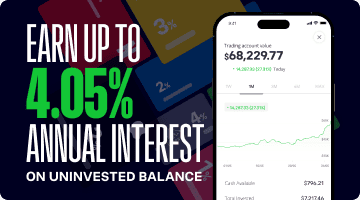eToro partners with BWT Alpine Formula One Team ahead of the 2026 season
LONDON, 15th January 2026 – BWT Alpine Formula One Team and eToro have today announced a...
eToro announces multi-year sponsorship agreements with four Ligue 1 clubs starting 2025/26 season
eToro becomes the Official Trading Partner of AS Monaco, LOSC Lille, Olympique Marseille and...
The Audacity of Wealth: Jennifer Okpechi on why Financial Freedom is a Woman’s Greatest Tool
For project manager and Scrum Master Jennifer Okpechi, investing isn’t just about numbers, it’s...
Breaking the Comparison Trap: Jessie Leong on Why Your Financial Journey Is Never "Apples to Apples"
For writer and How I Fund This founder Jessie Leong, the hardest step wasn't learning the jargon,...



